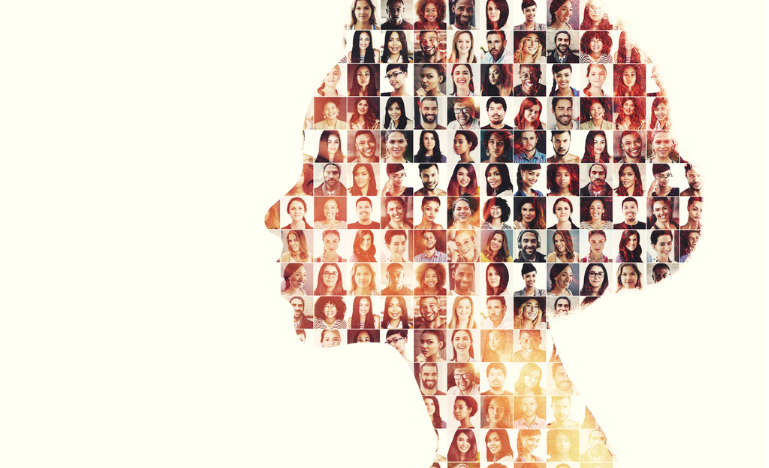Diversity: More than ticking boxes
We need educational programs in the legal profession that emphasize greater awareness of issues like bias in the workplace.

Reflecting on one’s beginnings — parents who may stress the importance of education, and the difficulty of navigating different barriers including socioeconomic, linguistic, and those related to gender, race, and ethnicity — resonates with many individuals who come from diverse backgrounds. It certainly resonates with me as an immigrant. A minority individual trying to penetrate, and succeed, in the legal profession faces myriad challenges and barriers.
The challenges include finding adequate access to legal education, mentors, and fighting off preconceived biases. Despite the heightened attention focused on underrepresentation and a growing call for diversity, the profession continues to have small numbers of law students, associates, counsel, and partners with diverse backgrounds.
Increasing the profession’s diversity requires law schools and the profession to understand the barriers that a minority individual may face.
Many individuals with diverse backgrounds are either first generation Canadians or recently immigrated. Navigating law school and the legal profession can be unclear and hazy. Those who want to become lawyers may not have family members who are lawyers (in Canada or at all). Their parents may have minimal education and socioeconomic status such that they cannot focus only on studying, but also have to maintain a full or part-time job while on the path to law school and during law school. While pursuing my undergraduate degree, knowing that I wanted to pursue a legal career, I worked three jobs to graduate with manageable undergraduate debt. I was aware that further debt was on the horizon if I were to get into law school.
Further, I was raised to appreciate the value of education as a means towards self-reliance and possibly having a much more promising future. I immigrated as a teenager, without knowing a single word of English, and was anxious that I did not belong. My parents strongly encouraged me to pursue higher education as a means of achieving and obtaining a better life. Having the choice and the encouragement to pursue what I could potentially be passionate about led me to choose a career in law. However, it is not just about achieving a higher education for many but having access to that higher education and navigating the unknown waters that may be the legal profession. While I knew I wanted to be a lawyer, the path to get there seemed nearly insurmountable.
Law school is, of course, a steep path with high and ever-increasing tuition. It also brings a significant and arduous adjustment for people, me among them, who did not grow up within Canada’s social context. Not knowing how to adjust while obtaining the grades that law firms were looking for was another obstacle.
In applying for summer positions as a 1L, law firms look for the “top candidate”, as primarily determined by grades. Many candidates who offer diverse and rich experiences are turned down because of the dreaded transcript. Many law firms do not see the ability of the future lawyer. Grades in law school are not a reflection of one’s capabilities and greater strengths. Some law students have the privilege to spend their time mastering law school. At the same time, many of those from diverse backgrounds, and who may be immigrants or the first generation in this country, have to focus on the possible language barrier and the differences in drafting and writing a law school exam. They may also have to work while at law school. All of the mentioned factors can contribute to not obtaining the highest grades possible. Students have one semester to make an impression: law firms hire 1Ls with high grades, which essentially allows them to secure articles as well.
Law firms should be looking at the invaluable experience that diversity brings. They should look beyond a transcript, beyond the first semester of law school, and beyond how many summer positions a law student secured. They should appreciate that sometimes, not having the highest grades in law school does not truly reflect the incredible merits a candidate, particularly one from a diverse background, brings.
After overcoming barriers to accessing law school and articles, minorities then face additional unique challenges in navigating the legal profession itself. Mentorship is vital to young lawyers. It is particularly so for those who do not have a family member or a close friend who attended law school or for whom English is a second language. Once again, because the profession is marked by a deficiency of diversity, it is difficult to find appropriate mentors.
Diversity requires inclusion. Hiring a person from a diverse background does not establish diversity. Diversity and inclusion means having people of different cultures, experiences, and backgrounds in all levels of a law firm.
True diversity and inclusion in the legal profession is much more than checking off boxes on a checklist. One does not want others to think that you successfully obtained your position because you come from a diverse background. One’s qualifications are also relevant.
Although my experience in the legal profession has been tumultuous, I am thankful for this profession. I have been exposed to amazing individuals within it who hardly knew me. These people extended a hand and helped me navigate very low points in my early career. They helped me overcome rough situations as a young lawyer.
It is saddening when, at work, you are treated less fairly than your colleagues simply because you have an accent when you speak. When, as a visible minority, you are told that you are taking jobs away from Canadians and that the only reason you were hired was that you ticked the minority boxes. However, all the experiences I faced in my early career have made me the young lawyer I am today and have made me appreciate my current position.
We need more than talk and surveys — we need action from leadership. In addition to measures to increase the number of minority populations in law schools, law firms, and professional associations, it is also important to implement educational programs that provide members of the legal profession with greater awareness of issues like bias in the workplace and strategies to eliminate it.
It’s essential we recruit individuals from diverse backgrounds into the legal profession. But it means little if we don’t also include them for their attributes and their ability to bring a different mindset and skills to the legal profession.


